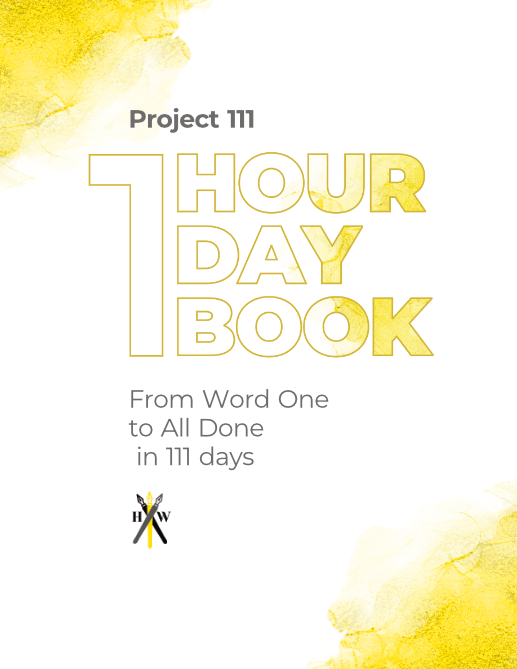Super hero movies have been the most popular movie genre for quite some time now. They often explore the many ways a car can be destroyed, a building toppled, or a bad guy put in jail, but they rarely (to their detriment) examine what it means to be a hero.
Sure, there’s the trope of “Oh, I don’t want to be a hero, but I think it’s my calling.” Or, “I don’t think I’m cut out for this” before finally unlocking the secret of their power, like in Into the Spider-verse.
But they rarely call into question what the characteristics of a hero are beyond having courage.
Is being a hero more than just being the one who’s “not wearing hockey pads“?
In this article, we’ll explore three characteristics of a hero and give you some ideas to craft a character who can move your readers’ hearts.
Table of Contents
What is a Hero?

Heroes have played their roles in stories for as long as stories have been told. They find their place in mythology, such as with Gilgamesh and the many heroes of Native American mythology. They’ve had their time on stage, such as any tragic hero from Sophocles’ plays (think Oedipus, and check out this article). They’ve traversed realms while performing extraordinary feats as epic heroes, such as Beowulf from the Anglo-Saxon epic.
With all these grand heroes and outstanding exploits in mind, you may be wondering, how do I create a character like that?
A modern hero vastly differs from the heroes of old. They don’t always act out of kindness because they’re perfect people. They aren’t always so full of courage that they’ll storm into battle with a grin on their face. They don’t even always help people. The modern hero is a complex character whom readers love because of their flaws, convictions, and choices of sacrifice.
Here’s a YouTube video you should watch. Not only does it feature three of my favorite writers (Patrick Rothfuss, Joe Abercrombie, and Brandon Sanderson), it shows those authors discussing this exact thing.
One reason I love this video is because all the authors talk about heroism from their writing experience. Pat is pretty Romantic (note the capital “R”) about what it means to be a hero. Joe’s views are just as gritty, nihilistic, and non-absolutist as you’d expect from the author of The First Law Trilogy. And Brandon comes in at the end with an optimistic and balanced take on the hero.
All of them agree, however that a perfect hero won’t intrigue any readers. Pat proposed that the bigger the flaw a hero has, the more of a true hero they become. For him, the joy of heroes is that they’re so imperfect and fall and fail. He seems to champion the tragic hero, and expresses that the more flaws they have, the greater the stakes become.
Joe argues that everyone is capable of heroism (he notes self-sacrifice as the defining trait), but you can’t really know who a hero is. He questions if a villain doing a heroic thing makes them a hero, or if a character who fails but has heroic motivations is the true hero. In a sense, I think Joe Abercrombie believes that there are no heroes, only flawed people acting heroic on occasion.
Then Brandon (whose laws of magic you can read about right here) contends that literature still has room for a classic hero: someone self-sacrificing who performs heroic actions for the greater good. With that in mind, he concedes that this particular character must be multifaceted with fears, doubts, troubles, and mistakes.
He says that despite these many flaws and insecurities, he still likes seeing people do the right thing. He points to Samwise Gamgee’s popularity as validation for this theory.
Regardless of who you agree with most, these are three of the best authors currently writing in the fantasy genre and have some pretty clear ideas about what makes a hero an interesting character to read.
Modern Characteristics of a Hero
Given that we want to write complex characters who have multiple dimensions and colors to them, these three characteristics will help you set up your novel’s hero to move readers and connect with them on (hopefully) personal levels.
1. Full of Flaws

All your characters should be riddled with flaws, but when writing a hero, giving them flaws like a real person takes them from the tragic hero status to the modern hero. The tragic hero typically totes a fatal flaw that ultimately leaves them destitute, but that’s not exactly what we’re talking about. Sure, you can give your character the flaw of hubris, but they’d better be worse than just that.
The idea behind creating flawed heroes is that doing so will ratcheting up the stakes and allow the reader more space to connect with them.
The more flawed you make your character, the more the reader will want to know if it’s even possible for them to accomplish their goals. Think for a minute about Captain Ahab. He’s simultaneously the hero and villain of the story, and more than anything you could say he’s flawed. He’s obsessive, rude, cruel, unyielding, and selfish. But he also is courageous, self-sacrificing (quite dramatically so), and driven.
Ahab intrigued me as a reader because he was so deeply flawed. He always had something to overcome in order to achieve his goals. I wondered if he would be cruel to the point of mutiny. If he would be selfish to the point of failing his goals. Every flaw brought with it a question. Ahab does so well as a character because of his flaws and his motivation.
When writing your hero, make sure they have flaws that make them seem not at all like a hero. This sets you up for an engaging arc. They can be cruel and selfish like an antihero or villain protagonist, but whatever flaws you pick, you’ll be doing your hero a great service.
You’ll be the real hero of the story by doing this.
2. Covered in Conviction

Conviction is possibly the most important characteristic of a modern hero. Because morality in modern tales is so often gray, defining your hero’s morality and showing them stick to it will make them seem like more of a hero.
Kelsier from Brandon Sanderson’s Mistborn trilogy is a great example of this characteristic. He embodies all three of these heroic qualities, but his conviction sets him apart. For those who haven’t read the trilogy (You definitely should, by the way), the world basically has a slave class and a noble class. Kelsier hails from both and firmly believes that the slave class should be freed and the noble class brought down.
His conviction (one that the noble class would consider unthinkable) leads him to perform heroic feats. He’s flawed in a few ways, but his conviction and drive to free people make him a hero. He’s constantly pushing for his goals and won’t let anything stop him. The reader enjoys this story because they know what he wants and like to see how he overcomes obstacles.
If you’re struggling with writing a hero, assess what their convictions are and how you portray them. I think these can always be strengthened. Heroism can be subtle, but your hero’s conviction should be firm.
3. Set on Self-Sacrifice

Self-sacrifice is a quality of epic heroes, classical heroes, and the purely good Superman heroes. It’s also important enough to be a tenant of modern heroes. This characteristic of willingness to sacrifice the self for some sense of greater good accompanies plenty of heroes.
Let’s look at Joel from the Last of Us as an example. If you haven’t played the game yet, HBO has a show in the works (but you should still play the game). The plot beats are pretty derivative of any zombie movie, but the story and characters feel raw and unique. I’ll mention some plot spoilers, but they’re pretty predictable so read at your discretion.
Joel is a flawed man of conviction (Does he sound like a hero with those qualities?). He believes in survival at all costs which has led him to smuggling without much care for people.
He’s eventually put in charge of delivering a young girl, Ellie, to some doctors because of her immunity. Over the course of the game, the two strengthen their relationship and form a familial bond.
(Here’s the spoiler:) At the end of the game, Joel delivers Ellie to the doctors for research and learns that she likely won’t survive the procedure. Rather than let the doctor’s follow through with the research to find a cure, Joel (violently) disrupts their plans and rescues Ellie from her almost guaranteed death.
You may think, “If he really loved Ellie, wouldn’t the sacrifice be to give her up for the greater good?”
That’s the interesting part isn’t it? His self-sacrifice here is not of a person he loves but of his convictions. With his survival-at-all-costs mentality, letting Ellie die would satisfy those beliefs because he would have access to a cure. But in saving Ellie, he solidifies his place as a hero. The doctors couldn’t guarantee a cure from the operation, but she would almost certainly have died.
When a hero sacrifices their morally gray convictions, they likely constitute an antihero. When a hero sacrifices themself to satisfy their convictions, they more likely constitute a more standard hero. Either way, having a self-sacrificing character is a great way to produce an engaging hero.

Our 84-page book planner and 111 day writing course.
Conclusion

Not every protagonist you write needs to be a hero. They don’t even need to have heroic tendencies. But, if you decide to craft a story with a hero, be sure to make them complex and multidimensional. Having a perfect, morally upright hero no longer interests readers (for the most part).
By writing a hero, you can join in the conversation of what a hero really is. You’ll be working alongside some of the greats in that regard. Patrick Rothfuss, Joe Abercrombie, and Brandon Sanderson are still trying to uncover what makes a hero heroic. The modern hero has plenty of philosophy and story arcs to explore.
If the call for a hero reaches your ears and you decide to act, you should try to include these characteristics of a hero: have them be flawed, give them a strong conviction, and let them be willing to sacrifice themself.
The character flaw will not only make them more interesting, it will let you increase their personal stakes. Stakes enable stories to be compelling, and with a flawed hero you can increase the stakes for the character, world, and reader.
Clearly displaying your hero’s convictions will help the reader understand their motives and set the trajectory for what kind of hero they are. Their conviction will likely set them apart from other characters. A hero feels more heroic when they’re driven and willing to act on the things they believe.
Self-sacrifice is one of the defining traits for a hero. This characteristic often follows the character’s conviction, setting the character apart from their peers and showing that they are truly heroic. This sacrifice needn’t come in the form of letting oneself die or being killed in a blaze of glory, it usually comes in order to satisfy or reject one’s convictions.
Fantasy is a genre filled with heroes, and if you’re writing in it, you likely have a story planned that relies on at least one hero. These tips should help you create a hero that stands out from bland heroes like Superman and Aragorn (in the books). Your hero will inspire your readers more if they notice that they’re not perfect.
For more tips and articles on writing, check out our blog!
gavinwride
Gavin is a fantasy author, short story enthusiast, and nature lover. When he’s not reading, writing, or exploring the outdoors, he is likely playing games. His board game collection is probably too big for someone living in a small apartment, and he has enough yet-to-be-played video games to fill a lifetime. His favorite book is "The Name of the Wind". His favorite author is Edward Abbey. His favorite game is "Dark Souls III", and he’d be more than happy to spend the day talking about lore, bosses, and game mechanics.
Our 84-page book planner and 111 day writing course.
